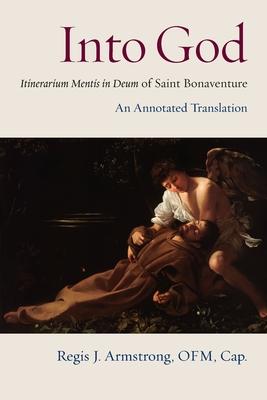An annotated translation of Bonaventure's Itinerarium mentis in Deum presenting both the Latin text side-by-side with a new English translation which attempts to avoid the use of Latin cognates while remaining critically faithful to Bonaventure's text. Using endnotes to open the text, Regis Armstrong opens each chapter from the perspective of historical theology referring the reader to authors prior to Bonaventure, e.g. Augustine, the Victorines, Philip the Chancellor, Avicenna, as well as first-and-second-generation Franciscan authors. While maintaining Bonaventure's architectonic approach, Armstrong studies each chapter as Bonaventure does by focusing on its unique character, e.g. by means of cosmology, epistemology, biblical theology, mystical theology. In a same way, the translator attempts to explain his translation of certain cognates into Anglo-Saxon English by citing contemporary linguistic tools, e.g., Brepolis Latin Texts.

Into God: Itinerarium Mentis in Deum of Saint Bonaventure
An annotated translation of Bonaventure's Itinerarium mentis in Deum presenting both the Latin text side-by-side with a new English translation which attempts to avoid the use of Latin cognates while remaining critically faithful to Bonaventure's text. Using endnotes to open the text, Regis Armstrong opens each chapter from the perspective of historical theology referring the reader to authors prior to Bonaventure, e.g. Augustine, the Victorines, Philip the Chancellor, Avicenna, as well as first-and-second-generation Franciscan authors. While maintaining Bonaventure's architectonic approach, Armstrong studies each chapter as Bonaventure does by focusing on its unique character, e.g. by means of cosmology, epistemology, biblical theology, mystical theology. In a same way, the translator attempts to explain his translation of certain cognates into Anglo-Saxon English by citing contemporary linguistic tools, e.g., Brepolis Latin Texts.